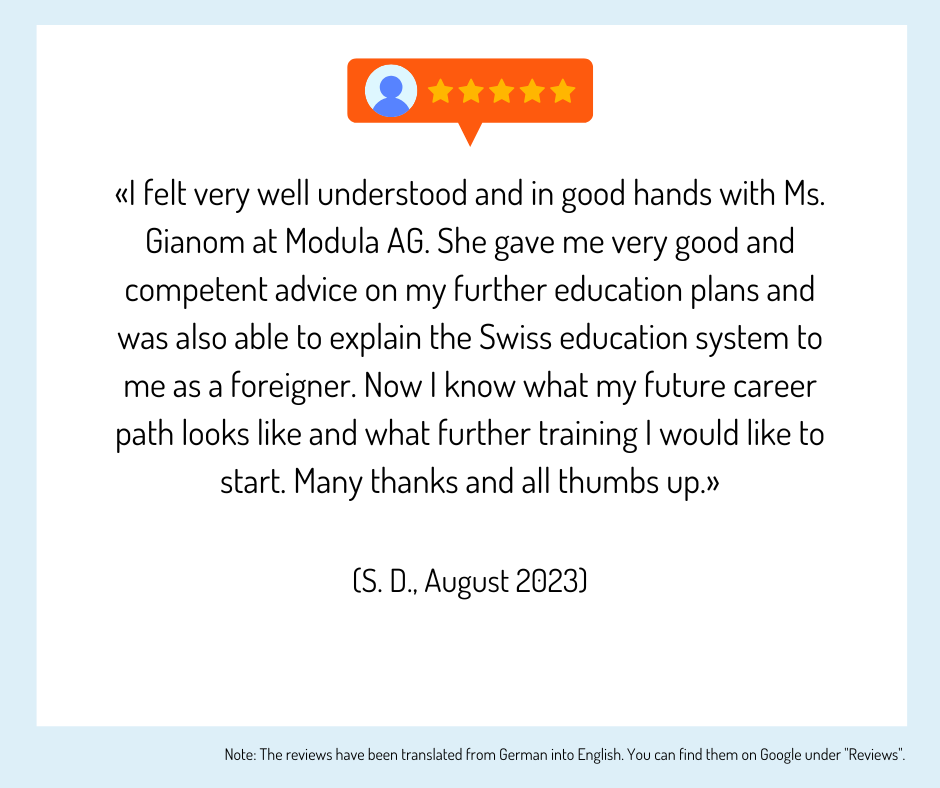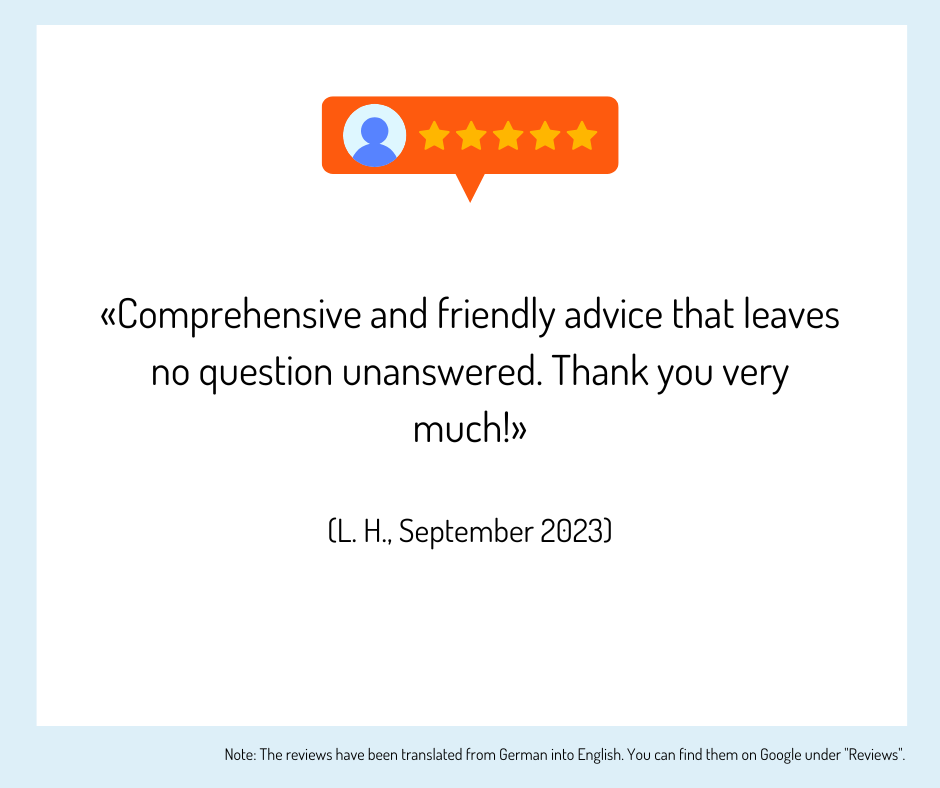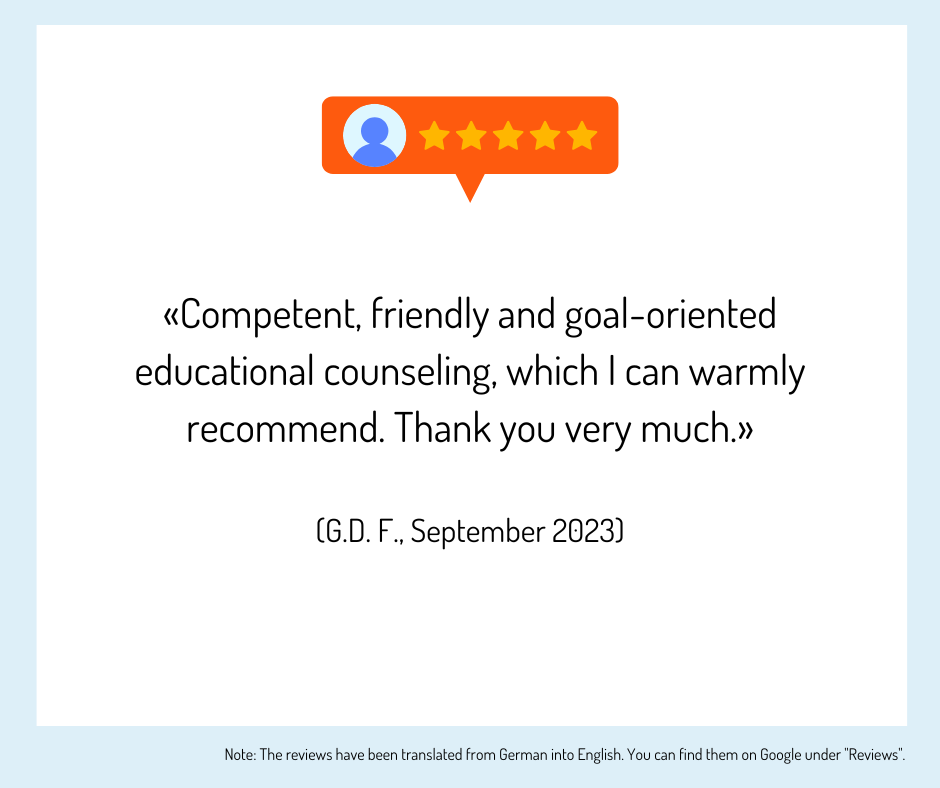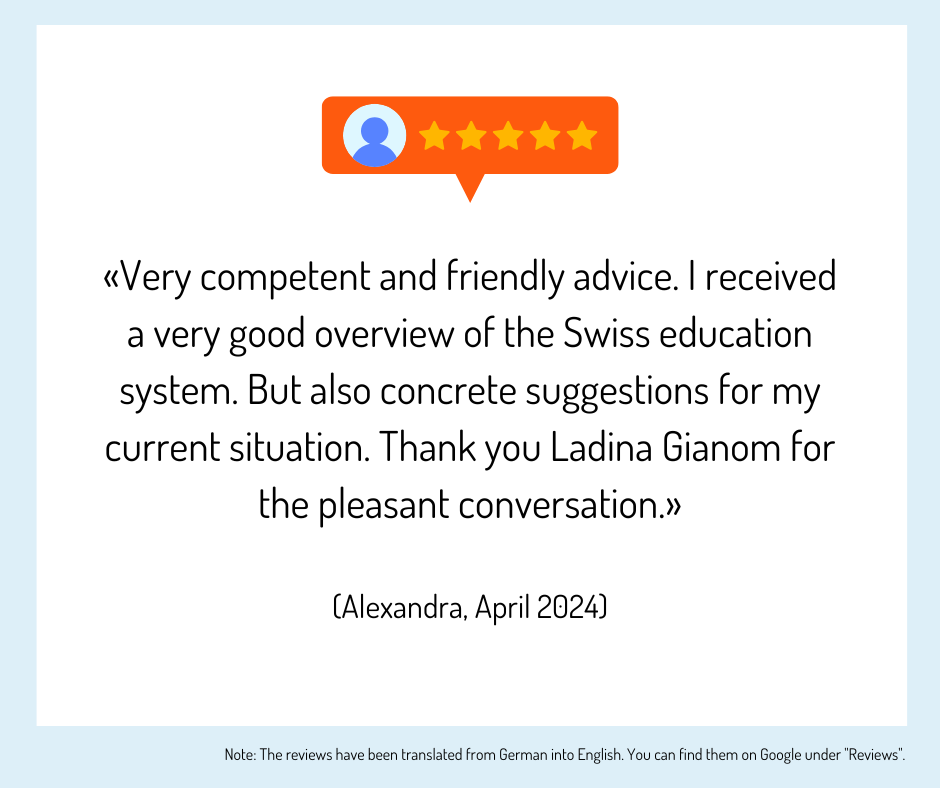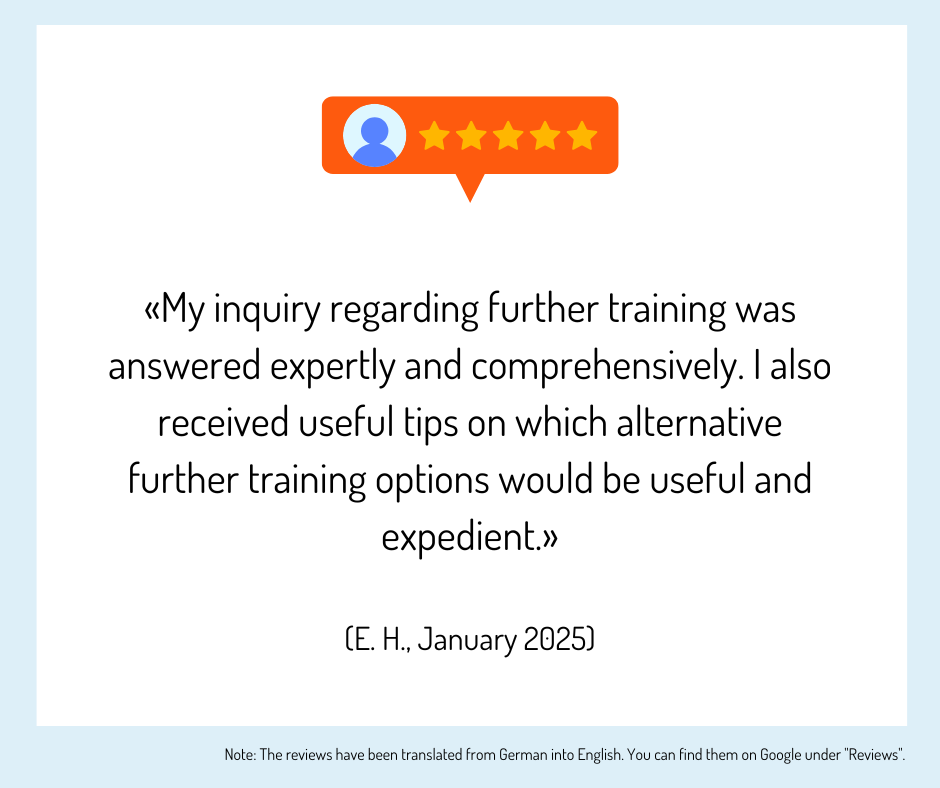Social pedagogue (HF) (Region Ostschweiz):
1 Provider
Request convenient free information on Social pedagogue: training, studies, continuing education, further training, overview of schools, information from the providers of your choice below now.
Sofort zur richtigen Weiterbildung
Questions and answers
Why study HF Social Pedagogy?
HF Social Pedagogy can be studied at a school - called Höhere Fachschule Soziales. Colleges of higher education impart skills that enable students to take on specialist and management responsibility independently. They conclude with a federally recognized diploma. As a rule, a completed basic education, relevant professional practice and professional experience in the relevant field are required. In terms of content, they focus on a narrower specialist area than universities of applied sciences.
How is the Bachelor's degree program in Social Pedagogy structured?
The Bachelor's degree program in Social Pedagogy comprises 180 ECTS and concludes with a Bachelor of Science in Social Work. The program can be completed in two different fields of study: Social Work and Social Pedagogy. During their studies, students choose one of the two fields of study, in which they then spend their main studies. Students complete a practical module in the foundation course and a second one in the main course. In addition to the compulsory modules, compulsory elective modules from the field of social work are also taken, which together must comprise at least 10 ECTS credits, as well as an interdisciplinary context module and two further elective modules, which must already be completed in the foundation course. In addition to the seminar paper and practical project, the Bachelor's thesis is also written.
What does a social pedagogue actually do?
A social pedagogue supports people of very different ages in coping with everyday life, personal development and learning processes, taking into account all life circumstances. Their aim is to promote independence and personal responsibility, create suitable leisure and exercise activities for them and integrate them into society. Social education workers can also be found within the family, where they provide parents with individual support in raising their children.
Where do social pedagogues work?
Social pedagogues work in residential groups and day care centers, in children's and youth homes, in socio-pedagogical family support, in children's and youth homes, in street work, in penal and correctional facilities, in homes and facilities for people with physical, mental and/or cognitive disabilities as well as in youth and leisure facilities.
What do prospective students of the "Dipl. Sozialpädagoge HF" course expect from the information event?
Prospective "Dipl. Sozialpädagoge HF" students expect the following insights from an information event at the school:
- 70 % Key data on the course
- 63 % Information on the training method
- 62 % View learning materials
- 55 % Get to know the school better
- 53 % learn more about future career opportunities
- 35 % Information on success rates and evaluations "Dipl. Sozialpädagoge HF"
- 34 % Clarify individual questions
- 28 % Discussions with the lecturers
- 24 % Graduates meet
- 23 % Information on the Swiss education system
- 16 % classrooms
Is it possible to shorten the training program "Dipl. Sozialpädagogin / Dipl. Sozialpädagoge HF" with a certain previous education?
The training course "Dipl. Sozialpädagogin / Dipl. Sozialpädagoge HF" at a Höhere Fachschule (HF) can be shortened by one year for persons with previous training as a Fachmann Betreuung EFZ / Fachfrau Betreuung EFZ.
What requirements must be met for CHE training as a social pedagogue?
For the CHE degree course in Social Pedagogy, students are generally expected to have completed a vocational apprenticeship of at least three years or an equivalent qualification, a Specialized School Certificate or a Matura. Persons with a purely school-based qualification must also provide evidence of at least one year of general professional experience. Applicants without relevant previous education are also recommended to complete a pre-study internship (400 hours) or at least 800 hours of professional experience in the field of social education. Those who pass the admission procedure or the aptitude test can begin the CHE Social Pedagogy program.
How much effort is involved in self-study for social pedagogy training?
Thanks to a survey of graduates, we have a benchmark for the amount of time spent on self-study in social pedagogy training. According to this survey, graduates of further education courses spent the following amount of time per week on self-study:
- 1 percent less than 1 h
- 8 percent 1 to 2 h
- 20 percent 3 to 4 h
- 18 percent 5 to 6 h
- 19 percent 7 to 8 h
- 11 percent 9 to 10 h
- 8 percent 11 to 15 h
- 15 percent over 15 h
Can I only train as a social pedagogue full-time?
The social pedagogy degree course at a College of Higher Education (CHE) can be completed either full-time or part-time. In the case of full-time training, school-based and practical training units alternate; in the case of part-time training, students must be employed at least 50 percent of the time in the socio-educational sector.
Different types of study are also possible at the University of Applied Sciences (UAS). In addition to full-time studies lasting at least 6 semesters, part-time studies can also be completed, which last around 8 to 10 semesters, whereby care must be taken to ensure that no other gainful employment is possible during the practical modules. The situation is different with the part-time practical course, which requires at least 60% employment as a social worker or social pedagogue and lasts around 8 semesters.
Tips, tests and information on "Social pedagogue CHE"
Erfahrungen, Bewertungen und Meinungen zur Ausbildung / Weiterbildung
Haven't found the right training or further education yet? Benefit from educational advice now!
Further training is not only important in order to maintain or increase professional attractiveness, investing in training or further training is still the most efficient way to increase the chances of a pay rise.
The Swiss education system offers a wide range of individual training and further education opportunities - depending on your personal level of education, professional experience and educational goals.
Choosing the right educational offer is not easy for many prospective students.
Which training and further education is the right one for my path?
Our education advisory team will guide you through the "education jungle", providing specific input and relevant background information to help you choose the right offer.
Your advantages:
You will receive
- Suggestions for suitable courses, seminars or training programs based on the information you provide in the questionnaire
- An overview of the different levels and types of education
- Information about the Swiss education system
We offer our educational counseling in the following languages on request: French, Italian, English
Register now and concretize your training plans.
